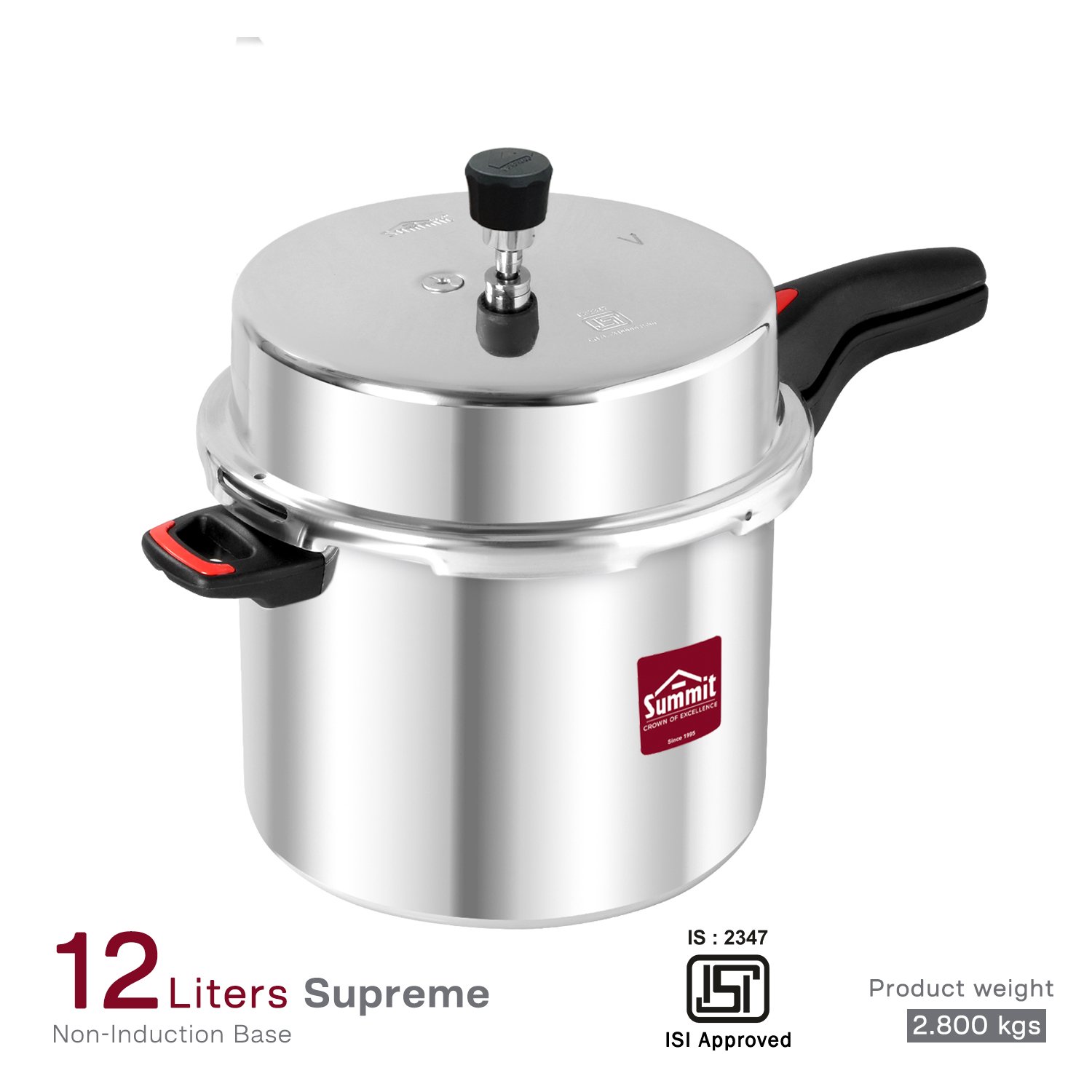Introduction
Pressure cookers are an indispensable tool in the modern kitchen. They are intended to deliver the benefits of reduced cooking times and enhanced flavors. However, like any other kitchen tool, they do not last for long. A pressure cooker’s lifespan can be surprising long if it is properly maintained. There are aspects to consider, including the brand as well as how frequently you use it. In this blog, we’ll look at some of the factors that influence pressure cooker durability. In addition, we will provide practical maintenance advice to help you get the most out of your investment.
How Many Years Does a Pressure Cooker Last?
Typically, the lifespan of a pressure cooker varies based on the brand, types, and frequency of use. If you use your pressure cooker on a daily basis and engage in regular maintenance, it could survive for up to five years. On average, most pressure cookers last up to three years. After then, you should consider investing in the replacement of cookers.
What Is the Common Problem for a Pressure Cooker?
There are several models of pressure cookers manufactured by a number of different brands; however, certain problems are more common than others, for example:
Defective Gaskets
A gasket is a form of seal often composed of rubber. It prevents leaks by filling the area between two surfaces. A filthy or broken gasket may prevent the lid from properly sealing. The gasket should be cleaned on a regular basis and replaced if broken.
Faulty Lid Lock Mechanisms
Almost all pressure cookers include a mechanism that keeps the lid in place while the appliance is in use. If the lid is not properly positioned, it may fail to form a suitable seal, resulting in a variety of potentially dangerous incidents, including the leakage of hot food or liquid.
Faulty Ventilation Systems
In a pressure cooker, a reliable ventilation system is essential for controlling the pressure and releasing it while not in use. The risk of an accident is greatly increased whenever there is a ventilation system malfunction.
Loose or Defective Pot Seals
Cookers normally have some form of seal that keeps the pot in place, but these can be loose or improperly placed. This can cause boiling-hot contents to leak outward towards the user or inward into the pot itself, leading to additional issues.
What to Do If the Cooker Is Not Working?
If your cooker isn’t working, look for simple problems like a faulty power supply, a faulty gas connection (if you have a gas stove), or a tripped circuit breaker. These include checking to see if the gas valve is turned on and, if you smell gas, turning off the gas supply right once. The most crucial thing to verify is that the lid is securely sealed and the vent pipe is clean and unobstructed. If you notice any food material on the burner or heating element, clean it. If those are satisfactory, go to the manufacturer’s instructions or contact a professional for more difficult concerns.
Is It Worth Repairing a Pressure Cooker?
If you want to repair your pressure cooker, it depends on several factors, like the nature and cost of the repair and the cost of a new one, depending on your personal needs.
Type of pressure cooker:
Gas pressure cookers are generally easier and cheaper to repair. if compared to an electric pressure cooker. Gas cookers come with parts like gaskets and safety valves, which are readily available, while electric cooker repairs can be more complex.
Age of the pressure cooker:
Pressure cookers may not be worth repairing if they are more than 5 years old. Generally, at this stage, they are more prone to corrosion or have safety issues.
Nature of the problem:
Minor problems like a loose handle or a gasket leak may be inexpensive and simple to address. However, fixing problems with electric cookers like broken safety valves, cracked lids, or electrical issues could be expensive.
Cost of repair vs. replacement:
Consider the cost of parts and labor and whether the repair is likely to be effective and long-lasting. It is better to go with a replacement if the price of a new pressure cooker offers great features and warranty.
Conclusion
A pressure cooker has become an indispensable piece of equipment for rapidly preparing food and saving crucial time. They may encounter common issues that, if left unaddressed, can create concern. By following these important do’s and don’ts, you may prevent your source of stress and ensure that your dishes turn out flawlessly every time. Remember to always follow the manufacturer’s instructions and seek professional advice if you are unclear how to handle a particular problem. With a little care and attention, you can enjoy the benefits of pressure cooking for years.

Leave a Reply